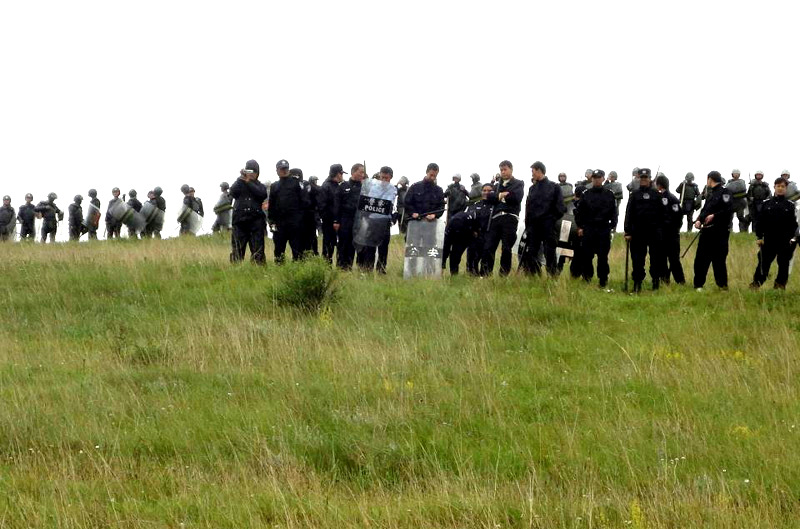 Geneva: - The Secretary-General of the United Nations Human Rights council has published a written statement regarding Chinese Human Rights abuses inside of Tibet and issued a recommendation that a fact-finding delegation be sent to investigate discriminatory practices committed against Uyghurs, Tibetans, and Mongolians inside of China.
Geneva: - The Secretary-General of the United Nations Human Rights council has published a written statement regarding Chinese Human Rights abuses inside of Tibet and issued a recommendation that a fact-finding delegation be sent to investigate discriminatory practices committed against Uyghurs, Tibetans, and Mongolians inside of China.
The published document details many different kinds of discrimination experienced by Tibetans inside of Tibet, and criticizes The People's Republic of China for using increasingly discriminatory practices against both the Tibetan population and those who practice the Buddhist faith since 2008.
It not only gives numerous examples of legal discrimination, it places great criticism on China's attempts to vilify The Dalai Lama, the spiritual leader of Tibet, who monks and nuns are legally required to denounce in order to continue practicing their faith.
It also attacks China's legal attempt to regulate the reincarnation of the Dalai Lama.
The Chinese Government's restrictive policies, "not only curtail the right of religion or belief, but further exacerbate existing tensions, and are counterproductive," said Mr. Heiner Bielefeldt, the Special Rapporteur on the Freedom of Religion and Belief
The document claims that all of the self-immolation protests have been directly related to oppressive Chinese policies, and that The People's Republic of China has continuously ignored recommendations made by the UN's Human Rights Council.
It criticizes the Chinese authorities for disregarding laws on Regional Ethnic Autonomy by ignoring clauses that require areas within Tibet to be administrated by native Tibetans. Additionally, it critiques China's policies regarding restrictions on teaching the Tibetan language in schools.
The document continues by detailing discriminatory law enforcement against the Tibetan people, particularly citing the "excessive use of force following the 2008 demonstrations that swept across the Tibetan Plateau," which saw a "disproportionate use of force against ethnic Tibetans." The document also cites the maltreatment of Tibetans detained for participation in the uprising.
It continues on to describe discriminatory law practices against protesting monks at Labrang Monasteries, one of whom are currently serving a fifteen year prison sentence, another of whom is spending life in prison. Family members of these monks were denied the right to visit them during the pre-trial period.
At Kirti monastery, two monks were given long jail terms for attempting to protect a monk who had self-immolated. They were charged with "intentional homicide" and denied the right to choose their lawyer, and information regarding their whereabouts is being denied from their family.
The document also states that, like these monks, many Tibetans are denied the right to choose their lawyer, including two Tibetans who were executed. It also claims that many lawyers are actually threatened with disbarment if they choose to represent Tibetans.
The declaration also cites unfair use of force by Chinese police in a number of situations in which they fired into crowds of unarmed protesters. Several towns are currently being placed under undeclared martial law.
Finally, the document describes economic discrimination against Tibetans, who are often the victims of discriminatory hiring practices and wage gaps with Han Chinese. It also cites the resettlement of nomads who practice sustainable lifestyles into sedentary communities.
A recommendation has been issued by the Council to the Special Rapporteur on Contemporary forms of racism, racial discrimination, xenophobia and related intolerance to both closely monitor the situation faced by Tibetans, Uyghurs, and Mongolians and to seek a fact finding mission to China.


![Tibet has a rich history as a sovereign nation until the 1950s when it was invaded by China. [Photo: File]](/images/stories/Pics-2024/March/Tibet-Nation-1940s.jpg#joomlaImage://local-images/stories/Pics-2024/March/Tibet-Nation-1940s.jpg?width=1489&height=878)















